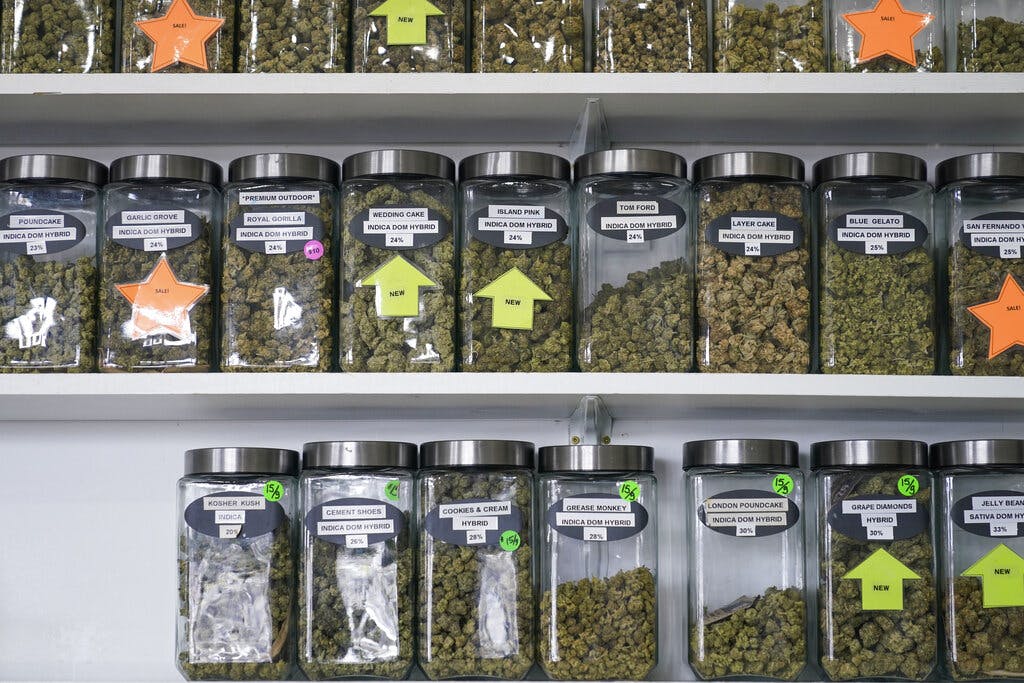While Equity Is Goal of New York Cannabis Program, Reality Is Intruding
‘As soon as they understood the price tag it drove a lot of that group away, in part because these are people from disproportionately affected groups often with criminal records.’

There are early signs that the social and economic equity program for New York’s developing cannabis industry may face significant headwinds, in part due to state regulations and prohibitively high startup costs.
If you’ve followed the leadup to legal cannabis in New York, you’ve likely heard that the state is including in its rollout a social equity program aimed at giving past victims of cannabis prohibition the first shot at acquiring licenses.
Half of all adult-use cannabis licenses will be granted to social and economic equity candidates, with the first 100 to 200 going to people with cannabis-related offenses on their records.
With such a focus on social equity in what is expected to become a multibillion-dollar business, what does the state mean when it says “equity” and how does it plan to reach this goal?
In this context, social and economic equity means trying to direct the benefits of this newly legalized industry to individuals and communities that were harmed by cannabis prohibition.
“The regulations advanced by the Cannabis Control Board today will prioritize local farmers and entrepreneurs, creating jobs and opportunity for communities that have been left out and left behind,” Governor Hochul said in a prepared statement.
“New York State is making history, launching a first-of-its-kind approach to the cannabis industry that takes a major step forward in righting the wrongs of the past,” she added.
Although the exhaustive list of people who qualify as social and economic equity candidates is not yet finalized, the proposed regulations include minorities, women, disabled veterans, distressed farmers, and people from areas that have been disproportionately affected by cannabis prohibition.
These people will also be eligible for upfront loans from the $200 million fund dedicated to helping these candidates start cannabis businesses.
Details about the process for acquiring a loan will be made public this summer, following a period of comment that ends May 31. The effectiveness of the fund will depend in large part on how loans are made available.
The New York Sun reached out to New York’s Office of Cannabis Management to get a sense for the framework that is being developed.
“New York’s cannabis law, the Marijuana Regulation and Taxation Act, establishes a framework that favors small businesses while setting a priority on licenses for equity entrepreneurs who come from the communities most harmed by the disproportionate enforcement of cannabis prohibition,” a spokesman, Aaron Ghitelman, told the Sun.
He added that the office is “at work developing supports across all license types as we build the most equitable and inclusive cannabis industry in the nation.”
Despite this effort, there are early signs that the startup costs and red tape surrounding legal cannabis may be driving away the very people the state aimed to help.
A lawyer at Mr. Cannabis Law, a law firm that specializes in cannabis and psychedelics, told the Sun that there are early signs that startup costs and regulations may be pushing social equity candidates away.
“The average person just can’t do it,” Alexander Sick said. “It’s a super complicated thing.”
He blamed high startup costs — ranging from tens to hundreds of thousands of dollars — as the chief problem driving away social equity candidates.
“As soon as they understood the price tag it drove a lot of that group away, in part because these are people from disproportionately affected groups often with criminal records,” Mr. Sick said.
Mr. Sick cited other proposed regulations, such as requiring applicants to have owned a profitable business for at least two years, as being a disadvantage to candidates from marginalized groups.
A booming gray and black market in New York also threatens smaller operators.
While the state is “going so slow there is this whole industry popping up of people operating without licenses — no consequences makes it harder for smaller ‘mom and pop operators,’” Mr. Sick said.
One part of the program that is often praised within the cannabis industry is New York’s “social and economic equity fund,” which is intended to lend money to qualifying candidates.
The state says the fund is for the “limited purpose of funding costs, which include, but are not limited to construction, renovations and equipment purchasing associated with establishing or developing adult-use cannabis Operators.”
“One of the reasons that the office of cannabis management has been going so slow is to build out this fund to help these groups,” Mr. Sick said. “New York is trying to put this out upfront so people have access to this right away.”
While this fund is lauded by many in the industry, it seems that the innovation of New York’s program, which is also partly responsible for the slow rollout, is broadly unpopular among the general public.
Only 33 percent of New Yorkers favor “ensuring that many of the first licenses for marijuana retail stores go to those previously convicted of marijuana-related crimes or their family members.” Fifty-four percent of respondents opposed the measure.
“Giving first dibs on marijuana licenses to those previously convicted divides Democrats and New York City voters. Strong majorities of Republicans, independents, voters outside New York City, and white voters give it a thumbs down,” the pollster, Steven Greenberg, said.

